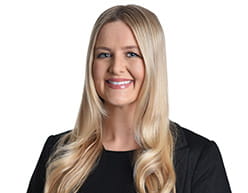Unjust enrichment claim fails following abortive property development joint venture
The recent decision in Chowdhury v Ali [2022] EWHC 2924 (Ch) is an unusual case involving a summary judgment appeal resulting in the ultimate failure of a claim for unjust enrichment. However, the broader context is far more common, where creative legal arguments are deployed to pursue a claim following an abortive property development joint venture.
The case involved two business partners, who owned restaurants together, and a property jointly. Ali advanced £200,000 to Chowdhury for the purposes of an investment into a property development in London. Half of the sums advanced by Ali had been raised as part of a £200,000 loan obtained from Lloyds Bank, secured against the jointly owned property. The development did not progress and at trial in the original proceedings Ali was awarded £200,000 in damages and £135,000 in interest by way of repayment of the investment.
In 2017 the jointly owned property was sold. The proceeds of sale were used to settle the Lloyds Bank loan and the balance was then split between Ali and Chowdhury evenly. Chowdhury considered that this was unfair and brough a claim for unjust enrichment, on the basis that the money Ali had recovered in the earlier proceedings should have been used to pay off the Lloyds Bank loan. On appeal, the High Court granted summary judgment and dismissed Chowdhury's claim. The crucial issue was that the test for unjust enrichment requires the enrichment to be at the expense of the claimant, which it was not because Chowdhury had not raised any of the funds himself.
It is not unusual for business partners and associates to enter into property development joint ventures without fully documenting the agreement or considering in what circumstances the funds put into that venture should be repaid. The key takeaway from this case is a reminder that in order to avoid subsequent disputes it is much better to fully document and agree what will happen if the development is unable to proceed.
